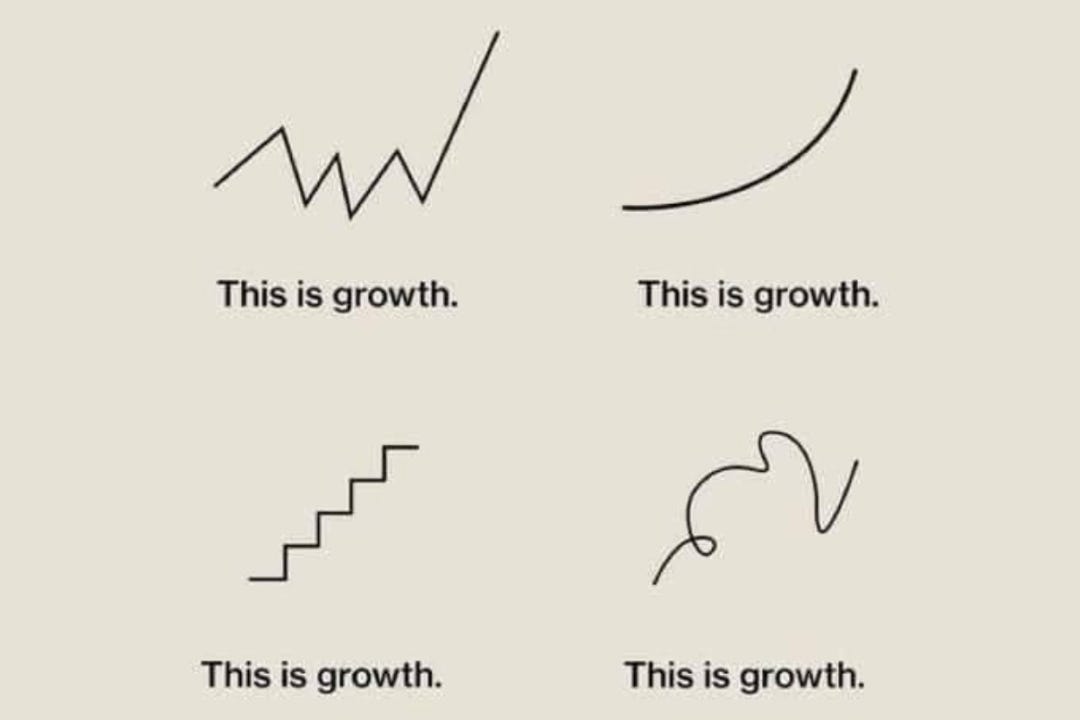A Blessing for Graduates and Anyone Who Feels Behind
Life's Road is Not Straight and There Will Be Detours
To the graduate, the dreamer, the one who thought they'd be further by now—there's more grace in the detour than you think.
We like our roads to be straight. We plan our futures like interstates—well-paved, clearly marked, designed to get us from here to there with as few surprises as possible. College, career, calling. We check the boxes. We follow the steps. We imagine a life that unfolds in a clean, upward trajectory.
But life rarely honors those kinds of maps. More often, the path looks like a tangle of back roads and detours, full of construction zones, delays, and turns we didn’t choose. Graduates step into the world with diplomas in hand and hope in their hearts, only to discover the terrain ahead is more complicated than they imagined. Maybe it’s not the road they expected. Maybe it doesn’t feel like a road at all.
No one tells you this in the graduation speeches. Those are filled with ambition and optimism, and rightly so. But they tend to skip the part where dreams stall, where plans unravel, where you wake up in a place you never meant to be and wonder how you got there.
That doesn’t mean you’re lost. It means you’re human.
The Myth of the Linear Life
Somewhere along the way, many of us internalized a damaging myth: that growth should always look like progress. That success is measured by speed and direction. That maturity is a staircase and faith is a straight line.
But that’s not how Scripture tells the story. In the biblical imagination, the journey is anything but predictable. Abraham wanders. Moses circles the desert for forty years. David finds himself hiding in caves long before he wears a crown. Paul spends years in obscurity before emerging as an apostle. Even Jesus lives three decades in quiet anonymity before stepping into public ministry.
Walter Brueggemann offers a helpful framework for understanding this rhythm. Using the Psalms, he identifies three movements in their words: orientation, disorientation, and new orientation. First, we dwell in a season where the world feels ordered and secure. Then something disrupts it—grief, failure, confusion, suffering. Eventually, by grace, we find our footing again, though not by returning to the way things were. What emerges is something new, something forged in struggle.
Psalm 23, for instance, is often read as a text of comfort, and it is. But the comfort it offers is not the kind that comes from certainty or clarity. It is the comfort of presence. The psalm doesn’t pretend life is easy. It names valleys and enemies, threats and needs. What makes it beautiful is not the absence of difficulty, but the unwavering nearness of God.
And here’s what may be most surprising: the Shepherd of Psalm 23 never speaks. He does not give instructions. He does not offer an explanation. He simply remains. He leads. He makes. He restores. He prepares. He anoints. He stays.
The Lord is my shepherd;
I shall not want.
He makes me to lie down in green pastures;
He leads me beside the still waters.
He restores my soul;
He leads me in the paths of righteousness
For His name’s sake.
Yea, though I walk through the valley of the shadow of death,
I will fear no evil;
For You are with me;
Your rod and Your staff, they comfort me.
You prepare a table before me in the presence of my enemies;
You anoint my head with oil;
My cup runs over.
Surely goodness and mercy shall follow me
All the days of my life;
And I will dwell in the house of the Lord
Forever.
Becoming on the Winding Road
We live in a world obsessed with outcomes, but God seems more invested in formation. That means what feels like delay might actually be development. What looks like being stuck might be something sacred. What seems like a dead end might be the Spirit's hidden work.
Years ago, a young woman who served in our church wrote about a season of deep depression that coincided with some of her most visible ministry involvement. She was leading, smiling, doing all the things, and all the while she was unraveling on the inside. She hid her struggle because she feared it disqualified her. She believed the lie that belonging is for the whole, not the hurting. And she learned that not from Jesus, but from the church.
Psalm 23 tells a different story. It tells the truth that presence matters more than polish. That being loved is not the same as being impressive. That we belong not because we are strong but because we are seen.
This psalm doesn’t rush to resolve the valley. It doesn’t skip over the shadow. It acknowledges that life takes us to places we never asked to go. But it assures us that the Shepherd doesn’t wait at the end. He walks every crooked mile with us.
The Blessing of the Detour
So if your road doesn’t look the way you thought it would, if the next step isn’t obvious, if what you thought would be a season of celebration feels more like a season of confusion, you are not failing. You are not falling behind. You are being formed.
And so I offer you this blessing:
May you resist the urge to measure your life by timelines and benchmarks.
May you learn to see the sacred in what feels like delay.
May your questions deepen your faith, not disqualify it.
May you hold your calling with open hands and trust that becoming takes time.
May you leave behind the need to have it all together.
May you find grace in the places you never thought to look.
And may you remember, always, that you do not walk this road alone. The Shepherd is with you. Even now. Especially now.
You’re not lost.
You’re becoming.


